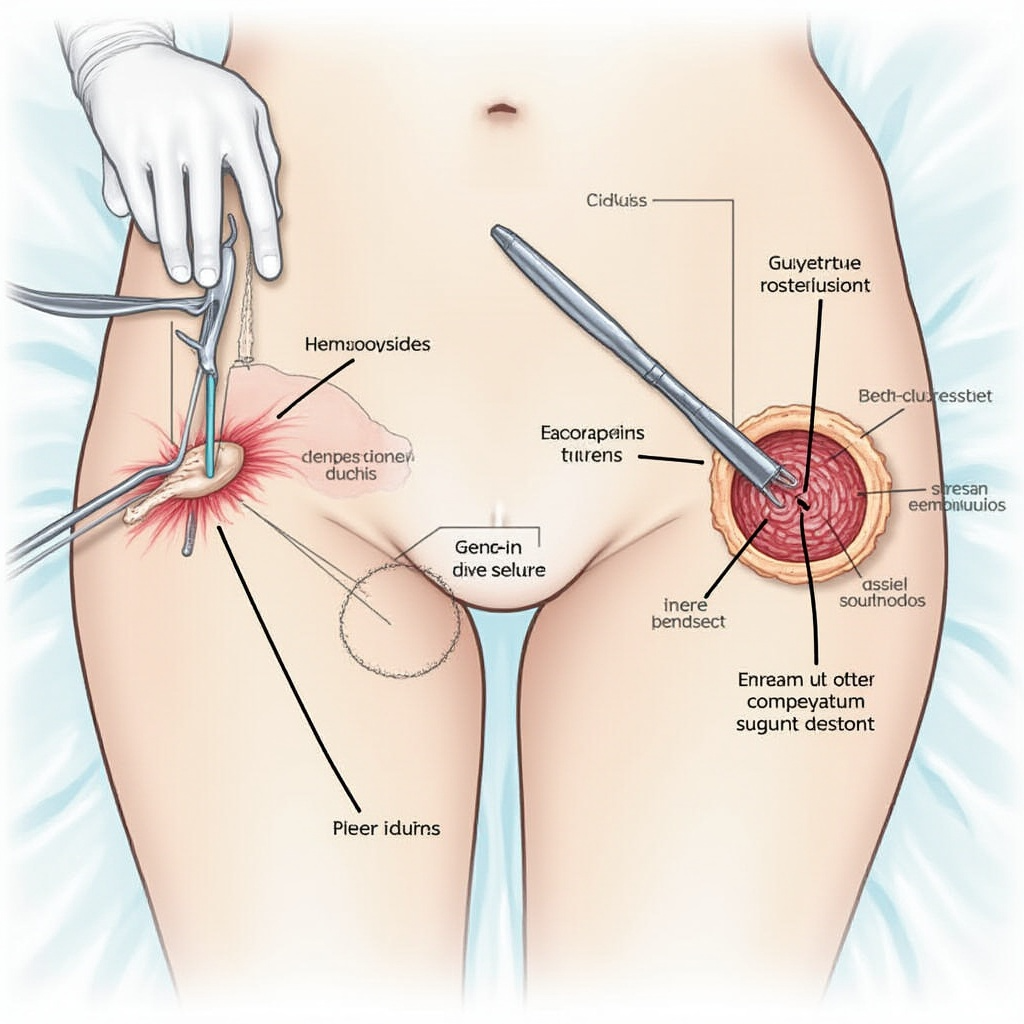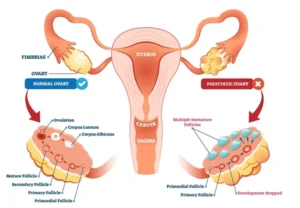Piles, or hemorrhoids, are one of the most common anorectal conditions that can affect individuals of any age group. They occur when veins in the rectum or anus swell and become inflamed, leading to itching, bleeding, discomfort, and in many cases, severe pain. While mild piles may improve with small dietary and lifestyle changes, painful piles can seriously disrupt daily activities and require proper treatment.
In this blog, we will explore the best treatment for painful piles, effective home remedies, medical options, and preventive measures. We will also answer some frequently asked questions, including:
- How to get relief from pile pain immediately?
- How to treat very painful piles?
- What can I drink for pile pain?
- How long can painful piles last?
Understanding Painful Piles
Piles are usually of two types:
- Internal piles – Found inside the rectum. They are generally painless but may cause bleeding.
- External piles – Found under the skin near the anus and often very painful, especially when they form blood clots (thrombosed piles).
The severity of pain depends on the stage of the condition. While mild piles may only cause irritation, advanced piles can lead to sharp, stinging pain when sitting, walking, or passing stools.
Best Treatment for Painful Piles
The best treatment for painful piles depends on the intensity of symptoms, recurrence, and overall health of the patient. A combination of lifestyle changes, and homeopathic treatment is the best treatment for painful piles.
-
Lifestyle and Dietary Changes
- High-fiber diet: Include fruits, vegetables, legumes, and whole grains to soften stools and reduce straining.
- Hydration: Drink at least 8–10 glasses of water daily to prevent constipation.
- Avoid prolonged sitting: Especially on the toilet, as it increases pressure on rectal veins.
- Regular exercise: Boosts circulation, improves digestion, and reduces the risk of piles.
-
Immediate Relief Measures
Patients often ask, “How to get relief from pile pain immediately?”. Some quick remedies include:
- Warm sitz baths: Sitting in warm water for 10–15 minutes eases pain and swelling.
- Cold compresses: Applying an ice pack to the area reduces inflammation and provides rapid relief.
- Topical ointments: Medicated or herbal creams help reduce itching and burning.
These remedies do not cure piles but can help manage acute pain until proper treatment is started.
-
Homeopathic Treatment
Homeopathy is becoming increasingly popular as a safe and holistic treatment for painful piles. Remedies such as Hamamelis, Nux Vomica, Aesculus Hippocastanum, and Aloe Socotrina are prescribed based on the individual’s symptoms. Unlike conventional treatments that only provide short-term relief, homeopathy aims to correct the underlying digestive and circulatory imbalances, reducing recurrence and promoting long-term healing.
How to Treat Very Painful Piles?
When piles become extremely painful, especially with bleeding, burning, or difficulty in sitting, patients often look for a safe and lasting solution beyond temporary creams or surgical interventions. Homeopathy provides a holistic approach by addressing not only the pain and inflammation but also the underlying cause of hemorrhoids, such as chronic constipation, sedentary lifestyle, or digestive weakness. Remedies like Aesculus hippocastanum (for severe backache with piles), Hamamelis (for bleeding piles with soreness), Nux vomica (for piles due to sedentary habits and constipation), and Ratanhia (for burning pain after stools) are often prescribed based on the individual’s unique symptoms. Unlike conventional painkillers, homeopathic medicines work gently to reduce inflammation, improve venous circulation, and prevent recurrence.
Another benefit of homeopathy for painful piles is its long-term effectiveness without side effects or dependency. Instead of offering quick but short-lived relief, homeopathy strengthens the digestive system, regulates bowel habits, and reduces the tendency of blood vessel swelling in the rectal region. Patients often report relief not only from acute pain but also from associated problems like itching, burning, and bleeding. Under the guidance of an experienced homeopath, the treatment plan is highly individualized, ensuring that both immediate discomfort and the chronic tendency to develop piles are addressed. This makes homeopathy a safe and sustainable alternative to surgery for patients suffering from very painful piles.
What Can I Drink for Pile Pain?
Hydration is a key part of managing piles since it helps soften stools and reduces strain during bowel movements. Patients often ask, “What can I drink for pile pain?”. Here are some beneficial options:
- Warm lemon water: Improves digestion and prevents constipation.
- Buttermilk: Soothes the digestive tract and prevents acidity.
- Aloe vera juice: Known for its anti-inflammatory properties.
- Herbal teas like chamomile or ginger: Help reduce inflammation and promote bowel regularity.
Avoid caffeinated drinks, alcohol, and carbonated sodas as they dehydrate the body and worsen constipation.
How Long Can Painful Piles Last?
A very common concern is, “How long can painful piles last?”. The duration depends on the type and severity:
- Mild piles – May heal within a week with proper self-care.
- Moderate piles – Can last for several weeks if not treated.
- Severe or chronic piles – Can persist for months or even years if left untreated, with repeated flare-ups.
With timely treatment and preventive care, even chronic painful piles can improve within a few weeks.
Preventing Painful Piles
The best treatment for painful piles is to prevent them in the first place. Some effective preventive steps include:
- Eat a fiber-rich diet daily.
- Drink enough water throughout the day.
- Avoid straining during bowel movements.
- Respond to the urge to pass stools without delay.
- Maintain a healthy body weight.
- Exercise regularly to promote healthy digestion.
Expert Care with Dr. Rashmi Chandwani
When it comes to treating painful piles holistically, Dr. Rashmi Chandwani stands out as a trusted name in homeopathy. With years of clinical experience in managing chronic and lifestyle-related conditions, she specializes in providing individualized remedies that go beyond temporary relief. Dr. Chandwani’s patient-centric approach focuses on understanding the root cause, whether it is poor digestion, sedentary habits, or circulatory issues, and then prescribing safe, non-invasive treatments that ensure long-term recovery.
Why Choose CCube Homeopathy?
At CCube Homeopathy, patients receive comprehensive care for piles with modern homeopathic practices. The clinic ensures treatments are both effective and sustainable. By emphasizing natural healing, lifestyle guidance, and preventive care, CCube Homeopathy not only helps reduce painful symptoms but also minimizes recurrence. Patients appreciate the compassionate, personalized care and the holistic treatment environment that makes their healing journey smoother and more comfortable.
Conclusion
The best treatment for painful piles involves a multi-dimensional approach—providing quick relief, addressing the root cause, and preventing recurrence. While home remedies like sitz baths, cold compresses, and dietary adjustments offer short-term comfort, homeopathic treatment provide long-term solutions.
If you are struggling with severe pile pain, do not ignore the symptoms. Consult a qualified homeopathic doctor to determine the right treatment plan for your condition. With proper care, lifestyle modifications, and safe medical support, you can reduce discomfort, heal effectively, and prevent painful piles from returning.




